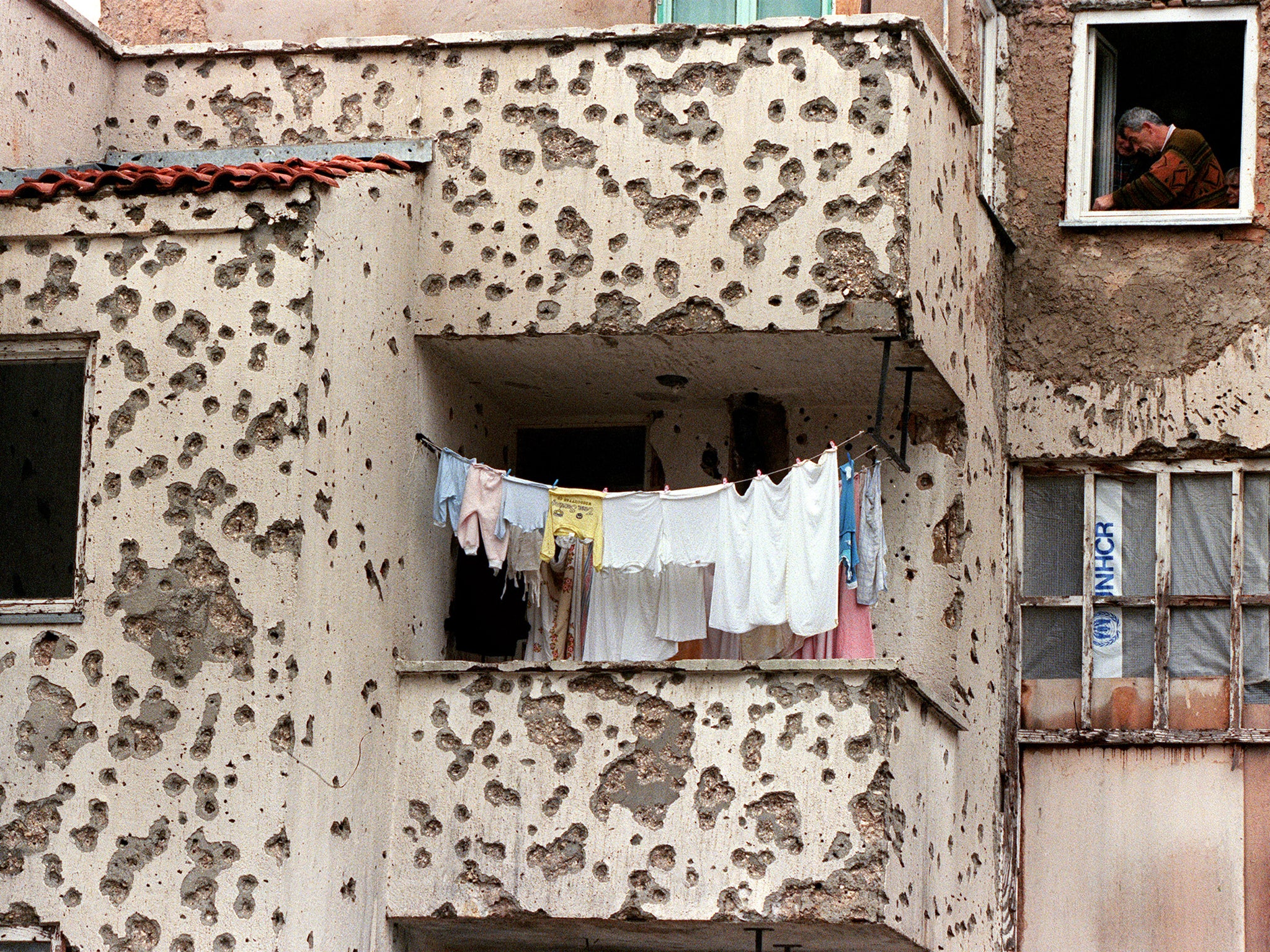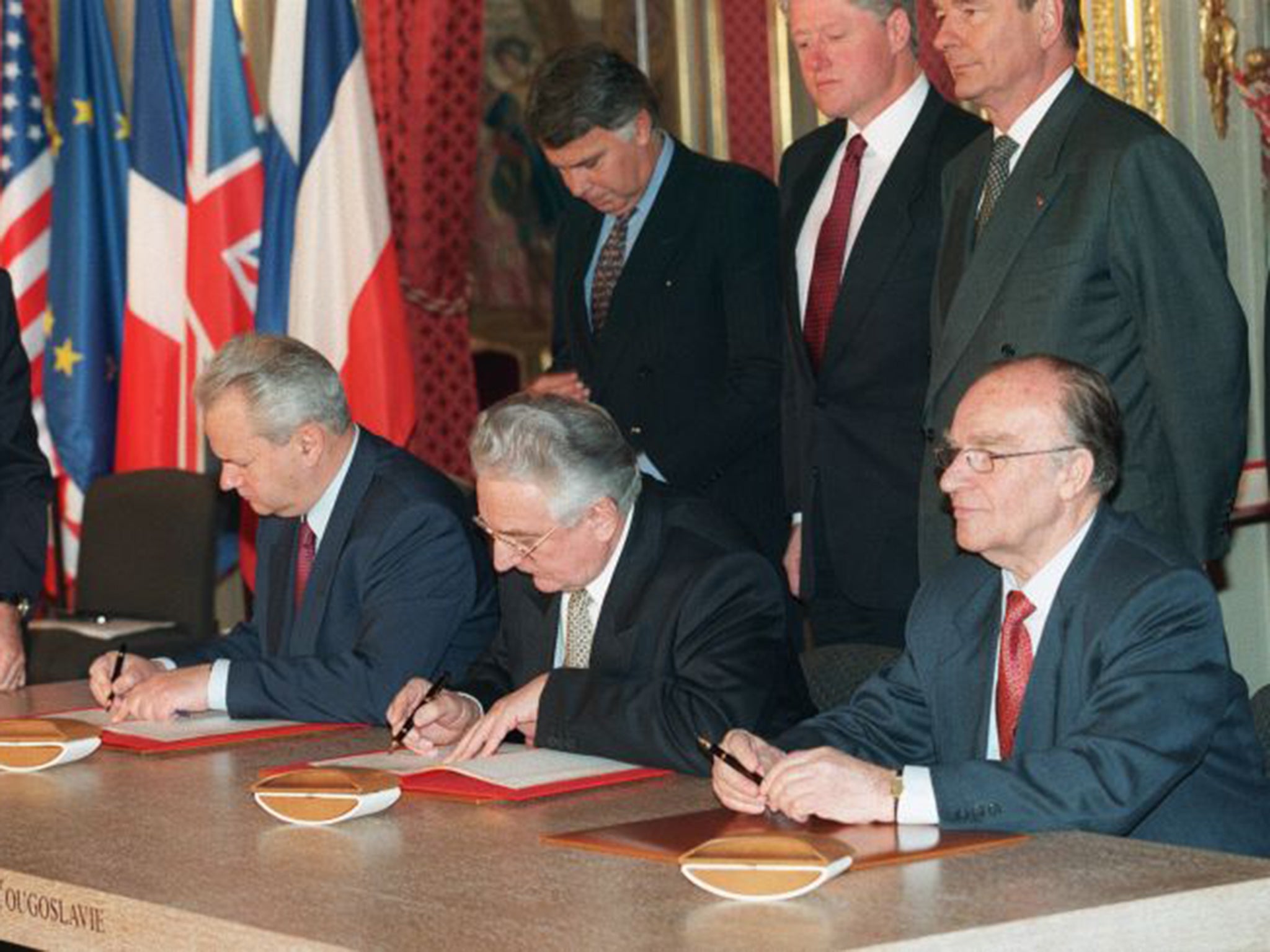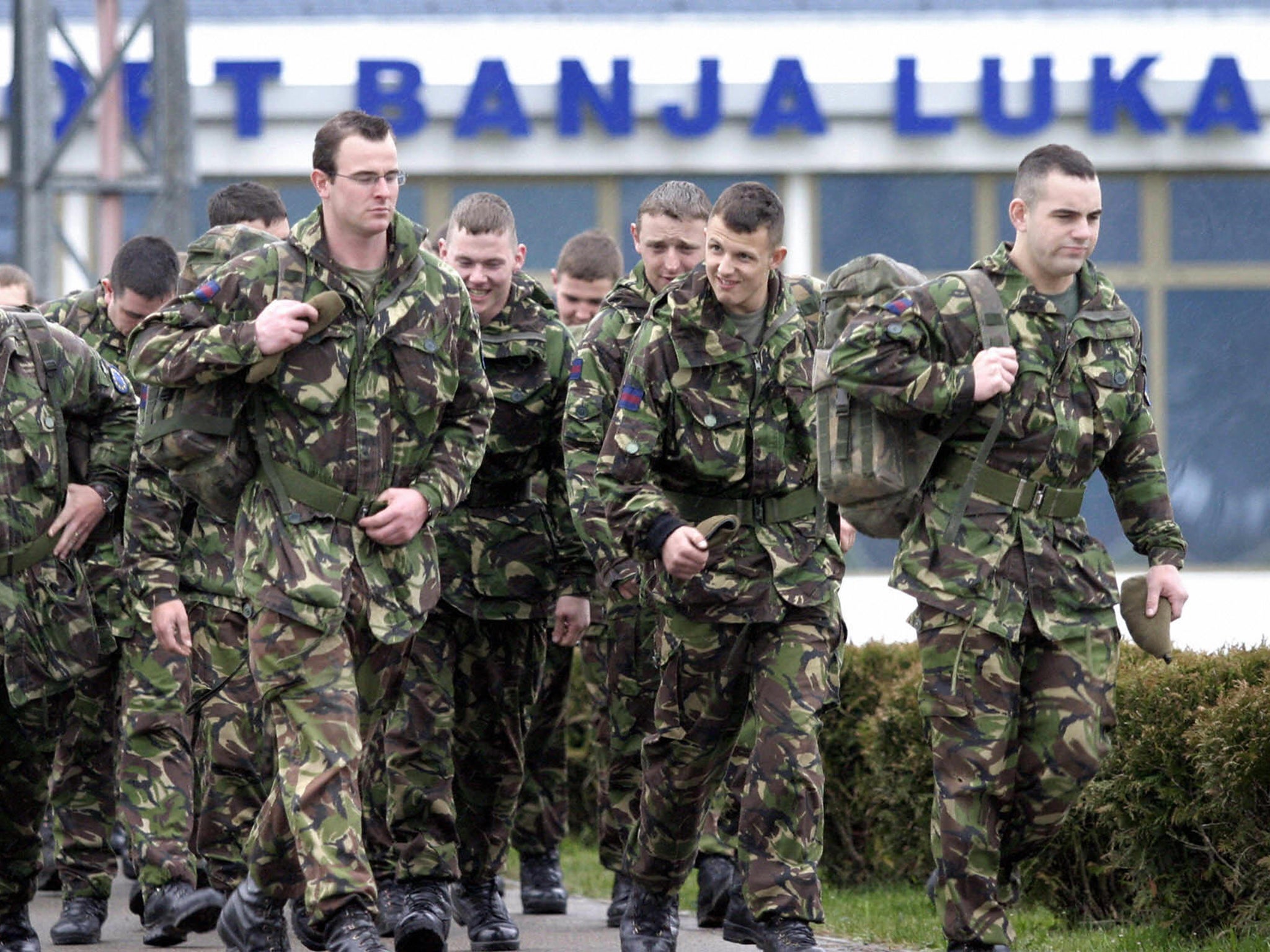Banja Luka: Twenty years after the Balkan war, citizens in this Serb enclave of Bosnia and Herzegovina feel insecure
Milorad Dodik, the nationalist strongman president of the Bosnian Serb Republika Srpska, is calling for independence

Its long boulevards, parks, and handsome public buildings are unusually spick and span for a Balkan city, but otherwise unremarkable. Yet Banja Luka is the capital of one of Europe’s strangest creations of the late 20th century: a mini state within a state.
Today, its Serb citizens will quietly mark what some refer to as “Dayton Day” – the 20th anniversary of the agreement to end the Balkan war that had killed 100,000 people and displaced more than two million.
The accord signed in Dayton, Ohio, in 1995 included establishing Bosnia’s “Serb Republic” – the Republika Srpska (RS), seen by many as the product of ethnic cleansing and genocide, but viewed by others as the only way to keep ethnic Serbs within a multi-ethnic Bosnia. It also established Banja Luka, at the head of a winding valley of the River Vrbas, as the Republika Srpska’s capital.
Twenty years later, the city has all the trappings of the capital of a small independent state, including flags in the Serbian red, white, and blue, a parliament and a “national” theatre. The RS has its own separate postal system, education system, and institutions for arts and science.
“Most people feel it’s like a country; it’s a kind of environment where Serbs feel more free,” said Dragan, 35, a statistician who asked that his surname not be used. “I grew up here, I feel it’s like a country, but Bosnia is also my country.”

Like many in Bosnia, his immediate concern is not history but uncertainty over the future, in a country where youth unemployment is 60 per cent, one of the highest levels in the world. “Everyone feels like victims, but we need to look into the future,” he said.
“Annex 4” of the Dayton agreement, aimed at separating warring Muslims, Serbs and Croats, effectively became the constitution of a country that now aspires to join the European Union. It divides it into two highly autonomous “entities” – the Serb-dominated RS, and Federation of Bosnia and Herzegovina, for Muslims and Croats.
The RS was first declared by separatist Serbs in 1992, when rejecting Bosnia’s declaration of independence from the former Yugoslavia. In the ensuing war, Serbs carved out territory by brutal ethnic cleansing, backed by the government in Belgrade, to avoid coming under what they feared would be Muslim domination. Memories are fresh of the Second World War, when hundreds of thousands of Serbs were massacred while Bosnia was controlled by the Nazis’ Croatian allies. Banja Luka’s colourful Orthodox cathedral, with its huge bell tower, was destroyed and only recently rebuilt.
“I woke up in a country that wasn’t my own,” says one former Bosnian diplomat of Serb ethnicity. “The Muslims didn’t want to live in a Serb-dominated Yugoslavia, and Serbs didn’t want to live in a Muslim-dominated Bosnia. It’s a myth that we lived happily together – whenever we had the chance to fight, we took it.”
Now the RS’s strongman president, the nationalist Milorad Dodik, is calling for independence unless demands for even greater autonomy are met. Last week he suspended all co-operation with Bosnia’s central justice authorities over the arrest of five Bosnian Serbs for alleged war crimes. “There is a dangerous power game, playing with national emotions,” said one Western diplomat in Banja Luka. “There’s constant rhetoric on both sides, including Muslim politicians saying that the RS is a genocidal creation.”
While many Muslims and some Serbs would like to see the RS abolished and a unitary, multi-ethnic state emerge, Edward Ferguson, Britain’s ambassador to Bosnia, recently wrote that such calls were “just as unacceptable as Serb attempts to undermine the state judicial institutions or to promote secession”.
Branislav Borenovic, the leader of the opposition Progressive Democratic Party, said: “The Dayton agreement is the only instrument that can keep us together. Within it you can do anything, if you have normal political relations and respect one another.”
For many Bosnians of all ethnicities, the current system is not delivering. Posts in Banja Luka’s gleaming steel-and-glass “Government Building” are seen as plum jobs in one of Europe’s poorest corners, where the average monthly wage is just over €400 (£290) and 68,000 Bosnians left the country last year.
“This state created by Dayton provides nothing,” said Ljubica, 19, collecting money for charity on a street lined by pastel-coloured Habsburg buildings and fluttering Republika Srpska flags. “This is a failed state. I want to live in Germany.” Some older people cling to the memory of multi-ethnic Yugoslavia, before wars tore it apart. “I want the old system to come back,” said Boro, 80, as he waited for a bus in a square where President Dodik holds political rallies.

“There’s still tension, still politics running its course, it’s not a solved issue. Most likely in the future nations that are smart will come together – the question is how.”
Yet Gordana Tesevic, a pensioner, is not so sure. Walking past the Ferhat Pasa Mosque, destroyed by Serb militiamen in 1993 but recently rebuilt, she said: “It’s shameful to say the Republika Srpska is the product of ethnic cleansing – we all suffered. Croat mothers wept, Serb mothers wept, Muslim mothers wept.
“I’m a Serb, I’m sorry that this happened to this historic monument. Hatred among nations is coming back to Bosnia. My family is mixed, but maybe it is better to separate ourselves if we cannot live together.”
Join our commenting forum
Join thought-provoking conversations, follow other Independent readers and see their replies
Comments